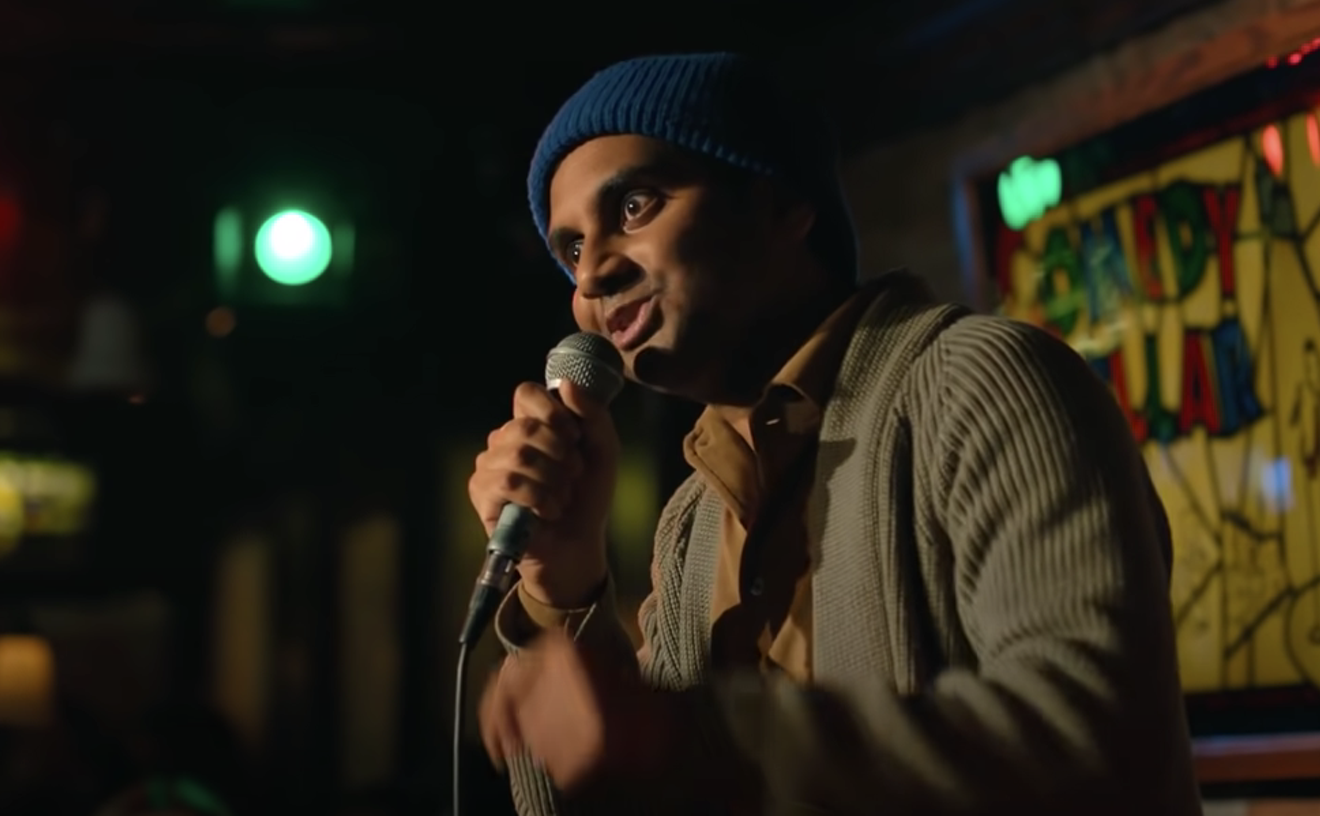I'd missed the first two installments of Jeff Daniels's Escanaba trilogy — Escanaba in da Moonlight and Escanaba in Love — so I had no idea what to expect from Escanaba: 1922, which was written last but is a prequel to the other two. I had a vague idea that I was about to see something dopey and scatological about weird-talking yokels who call themselves Yoopers and hail from a specific part of Michigan, Daniels's home state. I'd read a couple of reviews from other cities that suggested 1922 was the least successful of the three and that Daniels had run out of steam, so I didn't have high hopes for my evening at the Aurora Fox. Yet I ended up laughing almost all the way through — and feeling quite sentimental by the end.
The play opens as Alphonse Soady puts the finishing touches to a cabin in the woods, the deer camp that means home to him. He's struggling to hold the door in place while hammering in the hinges. Will he hit his thumb? Of course he will. That door is important both literally and symbolically. It can keep out scary things, allow entry to the occasional miracle and also vent the place of bad memories. The first entrant is James Negamanee, who hurls himself through the unfinished barrier in flight from a bear. Negamanee is obnoxious, posturing, fast-talking, irrepressible and full of unwanted advice, and Soady can't get rid of him. There are farts and songs, as well as an eating contest of sorts and a poem recited by Soady during an unexpectedly sentimental moment. And it turns out that Negamanee is a bit of a philosopher: Plunking himself down in a rocking chair, he talks about breath coming and going, mentions Lazarus and proclaims, "Now I'm dead" (rocking backwards) and "Now I'm not" (moving forward). So we expect the dead to intrude, and indeed they do, in a magical sequence I'd never have predicted from all the homespun philosophizing and earthy, silly jokes that preceded it. Soady's father appears, wounded in the Civil War and helped along by Black Jack, a runaway slave. "Do not question those things that occur around me," pronounces a grandiose Negamanee. "I am a man of luck and inspiration."
I can understand the complaints about the script; the switch from humor to pathos is abrupt (though it's hinted at in advance), and the fantasy sequence doesn't stand up to a lot of thought. But you don't have to think about it. You can choose to just slide into the action and enjoy it, and that's what I did. Director John Ashton has a knack for creating a kind of grubby, relaxed and welcoming reality, and he does that here with the help of Noah Lee Jordan as a gentle and effective Black Jack, as well as two terrific actors in the main roles: James Nantz as Soady and William Hahn as Negamanee. These aren't realistic characters, but in this self-enclosed world — drawn with such loving detail by Daniels — they feel real, and the actors don't make the mistake of turning them into caricatures. Nantz's Soady is low-key and natural, a perfect foil for the charged Negamanee, played by Hahn with the kind of wild-eyed and absolute commitment that Christopher Lloyd once brought to the unforgettable Reverend Jim on Taxi.
When Negamanee boasted of his ability to summon a buck at will, I couldn't help recalling an incident that occurred when I was a little girl. A man was visiting my mother. I don't remember who he was or why he was visiting, but I do remember him boasting about his relationship with animals. He said lions would emerge from the wilds of the African jungle just to lick his hands. This man was an unlikely adventurer, rotund and balding, and even at the age of seven I knew better than to believe him. But as my mother walked past the kitchen where our cranky and lethargic old cat lay dozing in front of the stove, the cat suddenly came alert, eyes wide, ears pricked. Then she sprang across the room, leapt onto the seat of a chair and from there onto the back, getting as close to our visitor's face as possible, rubbing her head against his cheeks and chin. That's how I learned that some clowns and braggarts are more than that, and that magic can be carried by the unlikeliest of people.











